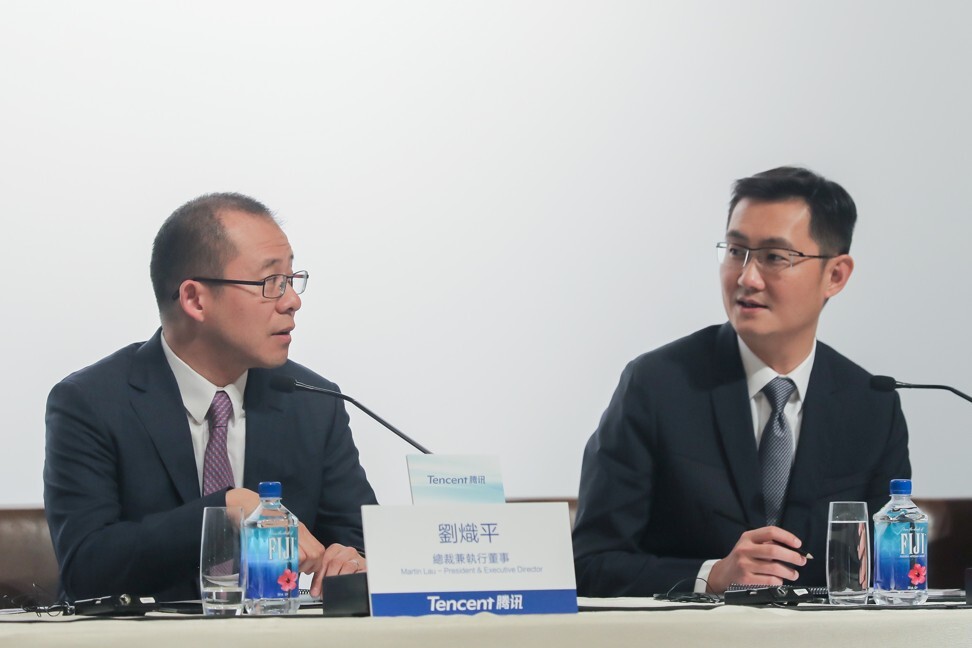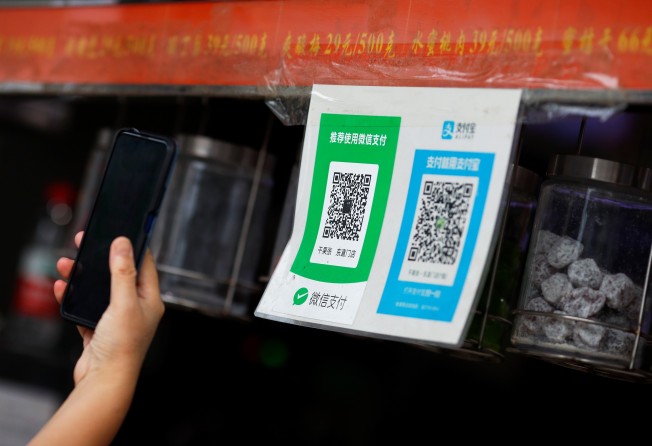
Tencent insists it is a collaborator, not a disrupter, of China’s financial markets
- Tencent President Martin Lau said in a webinar that China’s regulators encourage innovation from “trusted operators” if it is beneficial to society
- The country’s fintech industry was shaken this week when regulators scuttled a public offering from Ant Group, which was set to be the world’s largest IPO

Tencent Holdings’ president said the company is working closely with regulators to make it clear that it is not bringing disruption to the industry, but collaboration. The statements were made in a pre-recorded video released publicly on Wednesday, one day after China’s regulators announced a clamp down on the booming microlending market.
“In our various fintech businesses, we position ourselves as a collaborator and technology enabler of the industry and with other partners, rather than a disrupter in the market,” Tencent President Martin Lau Chi-ping said during the Hong Kong FinTech Week webinar. According to the organiser, the video was recorded in October before the new rules were announced.
Lau continued, “In that principle, we work very closely with regulators, and within the regulatory framework, with strong respect for risk management, which is fundamental to financial services and financial markets.”
Tencent is one of China’s largest players in the fintech industry. The company’s WeChat Pay is one of the top two mobile payment services, running inside the ubiquitous WeChat messaging app, which has 1.2 billion monthly active users. The app’s mobile payment service has 900 million MAUs and processes a billion transactions every day, according to Lau.
Lau’s comments represent an ongoing theme in China’s fintech industry, where providers have previously sought to present themselves as collaborators that are benefiting the finance industry. But the public release of this particular video coincides with upheaval in the industry.
Just this week, the Chinese government cracked down on Tencent’s biggest fintech competitor, Ant Group. The company, which is an affiliate of The South China Morning Post owner Alibaba Group Holding, was set to go public in Shanghai and Hong Kong this week with the world’s largest initial public offering. But 48 hours before trading began, Chinese regulators pulled the plug on Tuesday, sending shock waves through the industry and startling investors.
Tencent did not immediately comment on China’s latest regulatory changes.
While the implications for the industry overall are unclear, Tencent remains a major player with multiple financial products.
In addition to WeChat Pay, the company operates the wealth management platform Licaitong, which manages more than 1 trillion yuan (US$151 billion) in aggregated customer assets, Lau said. Tencent’s other fintech services include the microloan product WeiLiDai, provided through its affiliate WeBank, and the insurance platform WeSure.
Lau said managing the risk of innovation is a key challenge for the fintech industry, adding that regulators need to ensure new players are not seeking to scale at the expense of quality.
“That’s why I think the industry has to work very closely with the regulators and come up with forward-looking regulations allowing innovation but regulating innovation at the same time, in the right way,” he said. “For new fintech players, we just have to develop a very fundamental appreciation of the financial markets, so that you cannot actually disrupt the financial order, and manage risks in the right way.”

China has been seen as a leader in adopting fintech products and services, owing to wide adoption of mobile payments among consumers and the growing data-driven credit services market. Lau attributed this to the country’s booming mobile internet, which helped the country leapfrog over legacy credit card systems in other countries, and open-minded regulators.
“If you are a trusted operator, if you communicate with the regulators, and if your innovation is actually consistent with the principles of financial regulation and also beneficial to society, regulators actually encourage innovation,” Lau said.
Yet the scuttled Ant Group IPO this week, which was set to raise more than US$39 billion on November 5, suggests strains between regulators and some industry players remain.
After a meeting earlier this week between Ant’s senior executives and China’s top financial regulators, Ant said in a statement on Tuesday that there was a “significant change” in the business environment, possibly resulting in the company not fulfilling the listing requirements or disclosure rules.
The cancellation of the IPO came a day after regulators published draft rules to curb China’s booming online microfinance market, in which digital platforms like ones from Ant use big data analysis to help banks disburse loans to small businesses and individual borrowers.
Ant’s Alipay has fewer users than WeChat Pay at 711 million MAUs, according to Ant’s prospectus. But the app remains China’s largest mobile payment platform by transaction volume, with 55.6 per cent of the market in the second quarter this year, according to a report by iResearch. Tencent’s WeChat Pay and QQ Wallet accounted for 38.8 per cent.
Tencent said its fintech and business services segment grew 30 per cent in the second quarter to 29.9 billion yuan compared with the same period last year. The segment covers Tencent’s payment, financial and cloud businesses. The growth was driven by offline merchants adopting mobile payments and its wealth management platform, which has seen growing active users and rapidly expanding customer assets, according to the company.